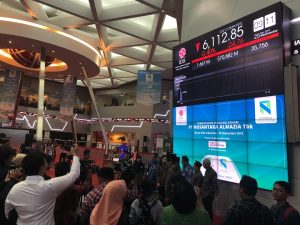E-Trade, the online brokerage firm, announced in September 2015 that it was closing its forex trading platform. The decision came as a surprise to many investors who had been using the platform to trade currencies. The announcement raised questions about why E-Trade had decided to shut down the forex trading platform and what this would mean for its clients. In this article, we will explore the reasons behind E-Trade’s decision to stop trading forex.
Regulatory Environment
One of the primary reasons for E-Trade’s decision to stop trading forex was the regulatory environment. Forex trading is subject to strict regulations by the Commodity Futures Trading Commission (CFTC) in the United States. E-Trade, like other online brokers, had to comply with these regulations. However, complying with the regulations was becoming increasingly difficult and expensive for E-Trade.
The CFTC requires forex brokers to meet strict financial standards, including maintaining high levels of capitalization and submitting regular financial reports. E-Trade, like other brokers, found it increasingly difficult to meet these requirements. The costs of complying with the regulations were also increasing, making it less profitable for E-Trade to continue offering forex trading services.
Low Profitability
Another reason for E-Trade’s decision to stop trading forex was the low profitability of the service. Forex trading is a highly competitive market, and brokers have to offer very low spreads to attract customers. The spreads that E-Trade was offering were not competitive enough to attract a large customer base. As a result, the forex trading segment was not generating enough revenue to justify the costs of operating the platform.
E-Trade’s decision to stop trading forex was also influenced by the fact that the market was becoming increasingly crowded. More online brokers were entering the market, making it even more difficult to compete. This meant that E-Trade had to spend more money on marketing and advertising to attract customers, which was not a sustainable strategy in the long run.
Risks and Volatility
Forex trading is a high-risk activity, and E-Trade was worried about the risks and volatility associated with the market. The forex market is highly unpredictable, and currency values can fluctuate rapidly. This makes it difficult for brokers to manage risk and protect their customers from losses. E-Trade was concerned that it would be unable to manage the risks associated with forex trading adequately.
E-Trade’s decision to stop trading forex was also influenced by the fact that the market was becoming increasingly volatile. The global financial crisis had led to increased volatility in the forex market, making it even more difficult for brokers to manage risk. E-Trade was concerned that its customers would be exposed to too much risk, which would damage its reputation and result in legal action.
Conclusion
E-Trade’s decision to stop trading forex was influenced by several factors, including the regulatory environment, low profitability, and risks and volatility associated with the market. The decision was not taken lightly, and E-Trade had to consider the impact on its customers and its reputation. Although forex trading can be a lucrative business, it is also a high-risk and highly competitive market. E-Trade’s decision to focus on other segments of the market was a strategic move that will help the company to remain profitable and competitive in the long run.





